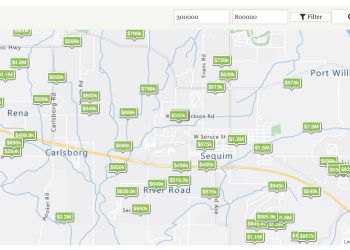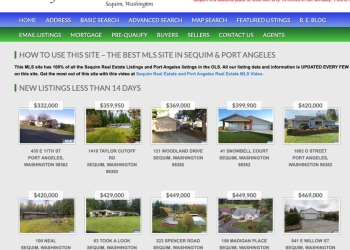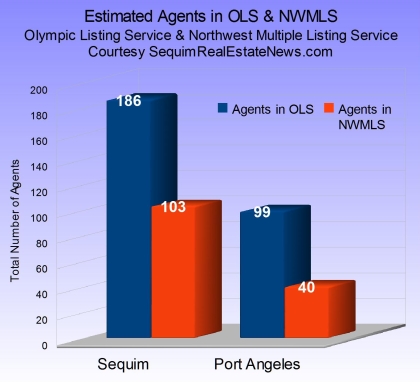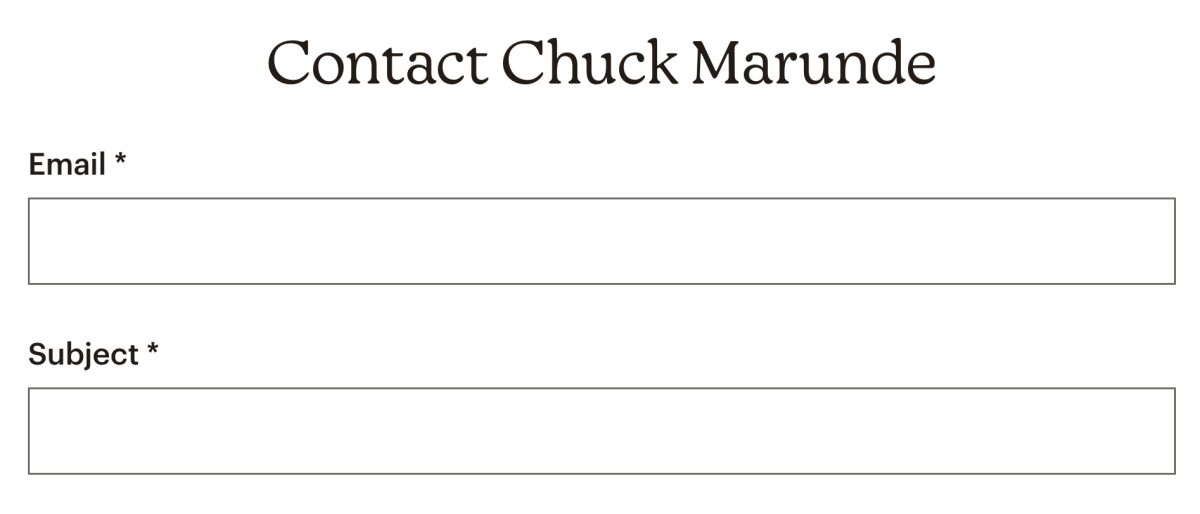Can real estate brokers co-list properties? Brokers from one market area often want to list a property in another market area with a different multiple listing service (MLS), and in order to get their listing in the primary local MLS, they may ask a local broker to co-list the property. A perfect example of this is when a Seattle broker asks a Sequim or Port Angeles broker to put their Sequim or Port Angeles listing in the Olympic Listing Service. The larger Seattle metropolitan area uses the Northweast MLS (NWMLS) as the primary MLS listing service for brokers, but Sequim and Port Angeles uses the Olympic Listing Service (OLS) as the primary listing service. The OLS has all of the local broker listings, but the NWMLS only has half to two-thirds of the local listings. A Seattle broker who lists a Sequim or Port Angeles property will not expose the listing to local brokers who are not also members of the NWMLS, and many are not. This will substantially reduce the likelihood that the property will sell if local agents (and their buyers) are not seeing the property in the MLS, and that would be a huge disadvantage and a huge disservice to the homeowner who may not even know that their property is not being marketed to the fullest to all brokers and buyers. This is why a Seattle broker will want to get listed in a Sequim or Port Angeles MLS.
The first question is can real estate brokers co-list property, and secondly will real estate brokers co-list property?
Real Estate Brokers Co-List Legal?
It might sound harmless enough to do a real estate brokers co-list agreement. Why wouldn’t a Sequim or Port Angeles broker say yes when a Seattle area broker lists a property in Sequim or Port Angeles and asks the local broker to add the listing to the OLS? By the way, my inclination is to cooperate with other brokers for the benefit of my clients, so I have asked myself the question, “Why not cooperate with another broker?”
The possibility of co-listing raises a lot of questions. Can real estate brokers co-list property and can both have the listing in a multiple listing service? In 2008 Redfin was fined $25,000 for violating NWMLS rules, and many Washington brokers have been fined thousands of dollars by the NWMLS for violating technical rules of the NWMLS. So the question on whether real estate brokers can co-list property is no small matter. There is a labyrinthian set of rules for each MLS, and to be a listing broker typically requires membership. If a single agent in an office wants to be a member of an MLS, the MLSs require that 100% of the agents in the office become members. It’s all or nothing for the MLSs. In addition, some MLSs require membership in a local Realtor association as does the OLS. Membership in a local MLS is not guaranteed. There is an application approval process, and it can take a couple of months to get accepted or rejected. I was an real estate attorney for 20 years, and I’ll be darned if I can conclude with certainty that co-list agreements are legal and not in violation of either or both the NWMLS and OLS rules and regulations.
Then there is the WAR, the Washington Association of Realtors, and the NAR, the National Association of Realtors, which are two more sets of ethics and practices that add to the brokers’ compliance responsibilities. While these organizations don’t specifically regulate real estate brokers co-list agreements, they do regulate many related legal and procedural issues, and sometimes it’s hard to figure out where the dots connect with other aspects of brokerage. We are also bound by stringent laws and rules administered by the Washington Department of Licensing and the Real Estate Division. When it comes to real estate brokers co-list agreements, there are multiple jurisdictions, multiple layers of laws and regulations, and the more you dig into it, the more questions are raised. There are a thousand ways for a broker to get in trouble even though he may just want to do what is right and wise for his clients.
In many states and in many multiple listing services, real estate brokers co-list agreements are illegal or prohibited by local MLSs. I’ve communicated with many agents in many states to learn this. But there is a lot more to think about besides the legal issues. Next, I examine the issue of whether real estate brokers co-list agreements are practical, and whether they are common or rare?
Real Estate Brokers Co-List Practical?
Even if someone could prove to me that both MLSs had rendered legal briefs that the practice was permitted (and they have not), it still does not resolve numerous practical legal and marketing issues. Who owns the listing? Both brokers? That’s important, because we have to be able to answer the question who is legally liable for a breach of the listing agreement with the owner, and who is legally responsible for marketing misrepresentations or other legal claims? Which broker is primarily responsible, and is the other secondarily liable? Who’s E&O insurance is on the hook? Who pays the attorney’s fees for any legal defense? Can both MLSs fine both brokers for violations of MLS rules or would fines be apportioned in some way? Do both brokers have to be members of each MLS in order to have a co-listing? This is just the tip of the iceberg. There are many other issues.
Real Estate Brokers Co-List Extremely Rare
All of these legal and practical (and very complicated) issues raise a business question for a local Sequim and Port Angeles broker when a Seattle broker asks him to add the listing to the OLS. Is it really worth it for a local broker to get a small flat fee of $200 to input the listing in the OLS as part of a real estate brokers co-list agreement? Obviously, it is not. In fact, it would be foolish for a local broker to take on such potential liability for so little compensation. Even if the brokers agreed on a percentage split, by the time all brokers get involved on two sides of a sale, you could end up with six broker/agents all trying to split a commission (two listing brokers and their two listing agents plus the selling broker and his agent). Clearly a Sequim or Port Angeles broker would end up doing most of the work with signage, opening the house for showings, attending home inspections, well inspections, septic inspections, and so on.
Should real estate brokers co-list properties? It just doesn’t make practical sense. Probably the greatest reason to avoid co-listing, however, is the disservice to the homeowners themselves. A Seattle broker who lists a Sequim or Port Angeles area property simply cannot list and market the property in the most effective way for a homeowner. It won’t be in the OLS, which means it will get very little local marketing exposure to all the Sequim and Port Angeles Realtors and all their buyers on their online MLS search sites. The listing will also get little personal attention as it is highly unlikely that a Seattle broker will regularly drive to Sequim or Port Angeles to check on a listing. They aren’t going to want to drive 2.5 hours one way (5 to 6 hours round trip) to show the property to prospective buyers either. Most Seattle brokers don’t know the local market, values, and cannot help buyers who may want to learn more about the area and the property. It makes no sense at all for a Seattle broker to try to list and sell a property two to three hours outside their own market. Most of all, it makes no sense for the homeowners to list their property with a Seattle broker.
Let me make the point in another way. There is no marketing advantage for a homeowner to have two real estate brokers co-list their property. None whatsoever. A co-list agreement really only serves one party–the out of town real estate broker who is trying to increase his listings. Even for that broker, the listing will turn out to be more of a pain and frustration than it will an easy source of income. I’ve seen this come true more times than I can count. (There is an exception for foreclosures that is not discussed here.)
Sometimes a local property owner has a Seattle broker who is a good friend or family member. That doesn’t solve all these issues, and it certainly is not a good reason to list a local property with a broker who is hours away. In plain language, it’s not wise for a Sequim or Port Angeles homeowner to list with a Seattle broker, and it’s not wise for a Seattle broker to list a Sequim or Port Angeles property. From a practical perspective, after 37 years in real estate, I’ve never seen a real estate brokers co-list agreement work smoothly. Not in 37 years in three different states.
It just doesn’t make any legal, marketing, or practical sense, and that’s why I have never entered into a real estate brokers co-list agreement.
Last Updated on May 23, 2021 by Chuck Marunde






















































Carole, no a listing agent cannot co-list with another broker without the seller’s written consent. A listing agent might have an assistant in his own office or he might get help within his own office, but that doesn’t create a co-listing. A real estate listing agent has no right to tell a homeowner what to do since the homeowner is the principal in charge and the agent is only an “agent” under agency law. It does sound like you need an attorney to straighten out the listing agent and the brokerage.
Hello Chuck,
Nice article. I have some questions. My brother and his wife signed a real estate contract with a local broker; they are getting a divorce. All of a sudden another agent from the Greater Seattle area has become the ring leader calling all the shots. My brother has never been contacted by her and never consented to a co-listed agreement. He and his wife agreed to an “as-is” sale, over a 5-day period to get as many bids as possible. The Seattle agent is now counseling the wife to do renovations unauthorized by my brother, and wants to invoice them at the closing. He does NOT authorize any of this. He no longer lives in the house, but she does. How can another co-listed realtor start changing the terms of the contract and and recommend unathorized work?? Both of their names are on the title. A local title company said this would be a big problem at closing, He feels like it’s extortion and has been advised to seek a real estate attorney? So, can the Seattle agent co-list the property without my brother’s signature? Are there two real estate contracts in existence? What does this mean for the commission–my brother’s contract says nothing about a shared commission between two co-listed agents? Is this legal in Washington? Ethical? Especially when it’s causing major problems and areas of disagreement, Thank you for your insight and any referral info.